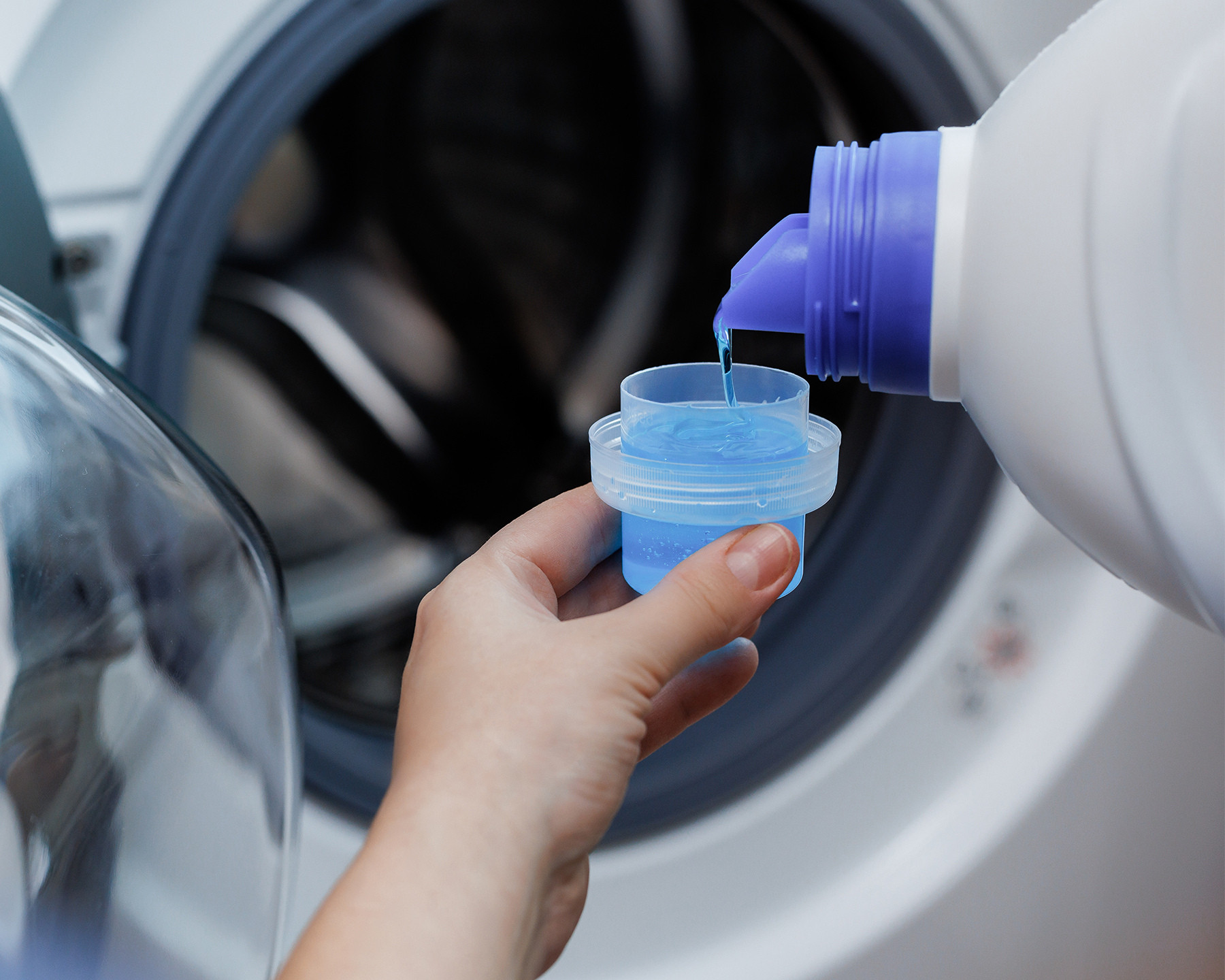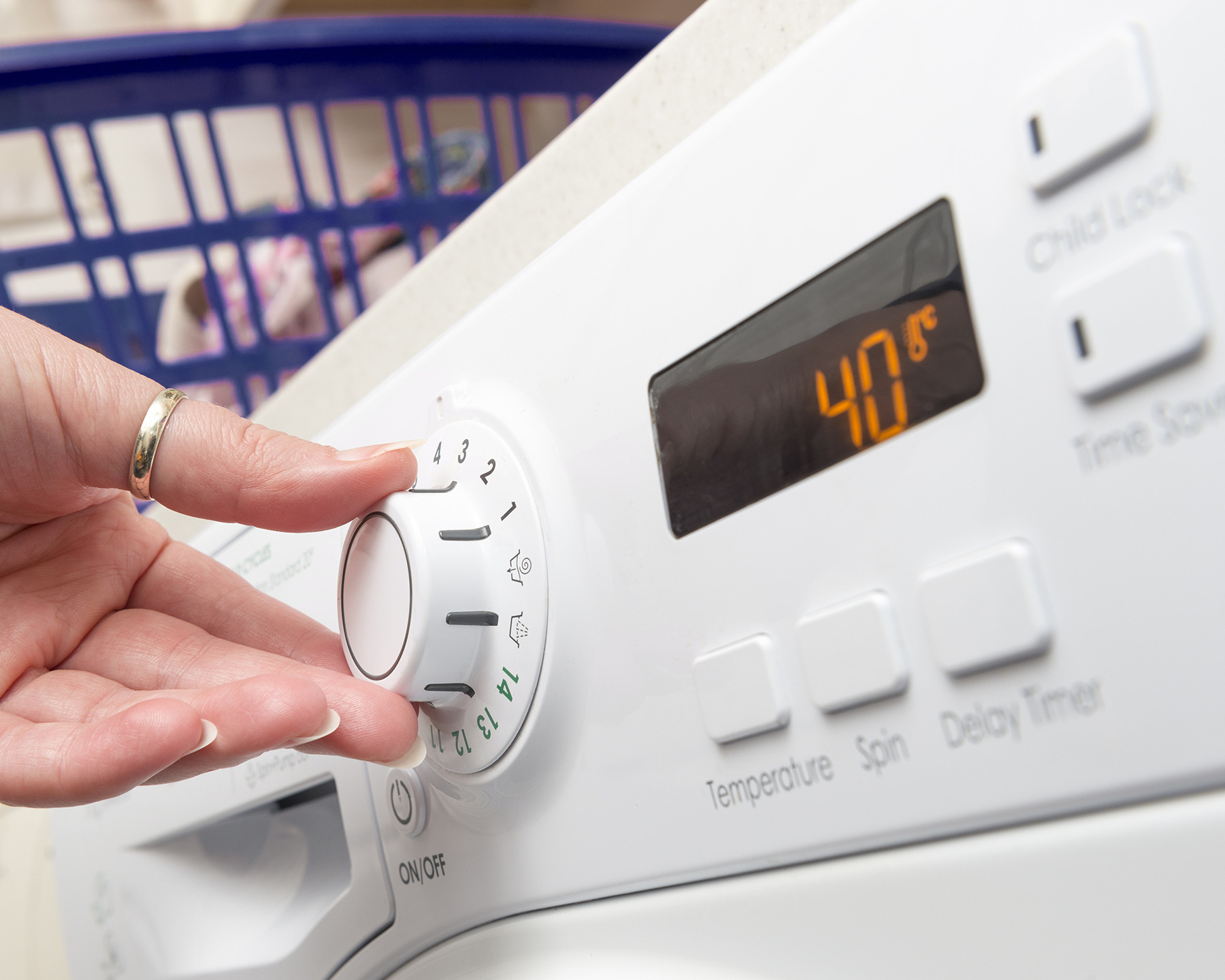
Laundry Tips for Hard Water Areas
Is hard water ruining your laundry?
If your whites are losing their whiteness and your towels are scratchy to touch, hard water is probably to blame.
Hard water has a naturally high mineral content. Because the minerals bind with the surfactants in the laundry detergent, hard water can reduce its cleaning power and damage your washing machine.
But living with hard water doesn’t have to mean the end of clean, soft and bright laundry.
Our practical tips show you how to fix hard water laundry problems – and protect your washing machine.
1. Add more laundry detergent to your washing machine
All laundry detergents contain ingredients that soften the water, so the rest of the detergent can do its job.
But with hard water, you need to add more laundry detergent so it can really clean your clothes and prevent dirt and limescale build-up in your washing machine.
Adding more laundry detergent will also stop soap scum being left behind, which can make clothes dull, weaken fabrics and irritate sensitive skin.
Add the right amount of laundry detergent by checking the dosing guide.

2. Choose a liquid laundry detergent vs washing powder
We’ve all got our favourite laundry products.
But whatever the brand, high-quality liquid laundry detergents are usually more effective than laundry powders if you have hard water.
This is because liquid laundry detergents are less likely to react with the minerals in hard water. They also rinse better, leaving less soap scum on laundry and in washing machines.
In contrast, laundry powder can bind with the minerals in hard water, creating clumps that can block your washing machine’s hose and drain.
3. Wash your laundry at a warmer temperature
Always check fabric care labels but, if safe, washing your laundry in warmer water should help your laundry detergent work better.
Why? Because hot water has less surface tension than cold water, meaning the detergent can get to work lifting dirt from your clothes.
The downside is that washing laundry at warmer temperatures uses more energy so can increase your bills.
However, many of today’s best washing machines come with useful eco-settings and other features – like this Bosch 9kg 1400 Spin Washing Machine with handy IronAssist, Active Water, Prewash and Single Rinse options.
Or check out our full range of Beko, Bosch, Blomberg, Haier, Hoover, Hotpoint, LG and Samsung freestanding and integrated washing machines.
4. Give your washing machine some TLC
Hard water doesn’t just leave laundry looking drab – it affects your washing machine too. Giving it a bit of regular TLC will help it work better and increase its lifespan.
To prevent daily residue and limescale build-up, add a laundry water softener liquid or gel each time you use your washing machine.
To remove stubborn residue and limescale, regularly run your washing machine empty using one of the many washing machine ‘deep-clean’ service or descaler products you can buy.
5. Fit a hard water softener in your home
So, if budget allows, fit a whole-home water softening system to remove your water’s hardness at source. Alternatively, fit a smaller water filtration or deionization system next to your washing machine.
6. What to do if hard water has already damaged your washing machine
Sadly, it’s probably time to buy a new one.
The good news is you can now choose from a wide range of freestanding and integrated washing machines, including the Bosch 10kg 1400 Spin Washing Machine with Automatic dosing whose handy tech includes i-Dos, Anti Stain, Iron Assist, Speed Perfect, Active Water Plus features.
And you could get even better value if you can wait for any washing machine sales, where you may find vented, condenser and heat pump tumble dryers on offer too.
If you could benefit from some expert advice on choosing the right laundry product for you, find your local store, or head on over to our laundry pages, to check out our range of washing machines, tumble dryers and washer dryers.
<< Previous
Do Tumble Dryer Balls Work?

